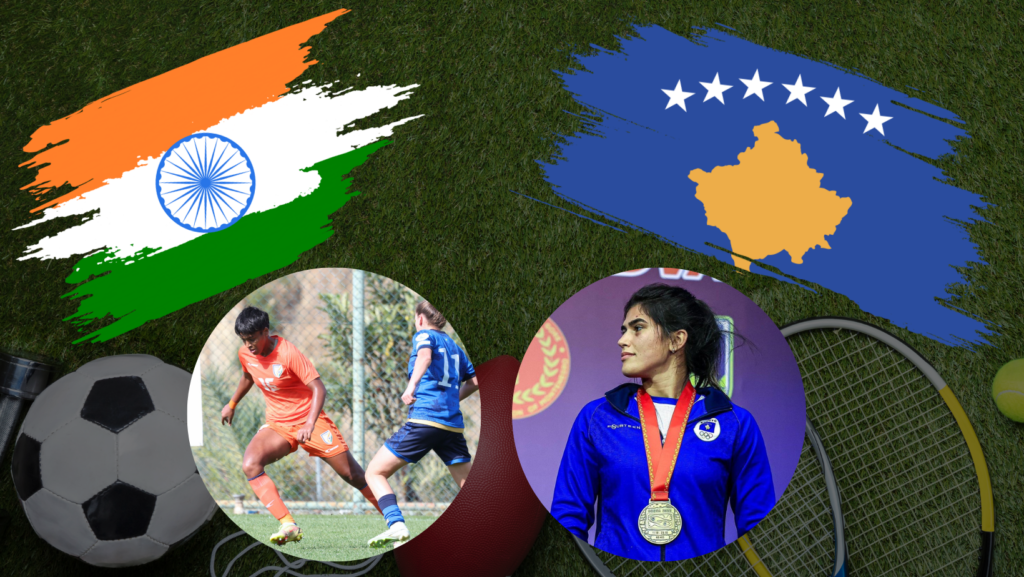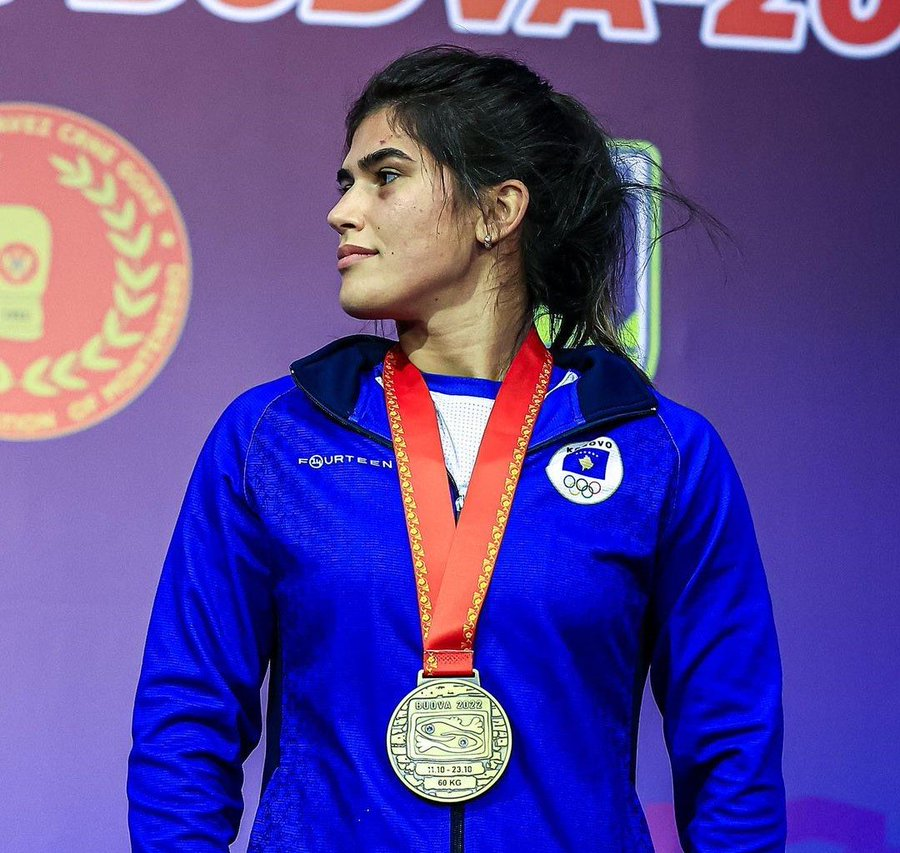
India’s commendable attempt to secure a first senior women’s title outside the SAFF region was thwarted by a last-minute goal in their final round-robin match against Kosovo in the Turkish Women’s Cup at the Gold City Complex in Alanya, Turkey, on February 27, 2024.
Despite a valiant effort, India were defeated by a skillful, solo left-footed finish from Erëleta Memeti, which took Kosovo to nine points from three matches and clinched their second consecutive title. India finished as runners-up with six points, marking their best performance in the tournament in three appearances.
Manisha Kalyan of India was honored as the tournament’s best midfielder for her outstanding performance throughout the competition.
But this competition had something more on the diplomatic level.
India and Kosovo find themselves entangled in a diplomatic standoff, rooted in India’s non-recognition of Kosovo’s independence since its declaration in 2008. As one of the countries steadfast in its position, India’s refusal to formally recognise Kosovo has sparked controversies and strained relations between the two nations.
The discord escalated in 2018 when the Indian government denied a visa to Kosovan boxer Donjeta Sadiku and her coaches for the AIBA Women’s Boxing World Championships, despite approval from the Boxing Federation of India and the Indian Olympic Association. This decision triggered a retaliatory threat from the International Olympic Committee (IOC), jeopardizing India’s bids for the 2030 Asian Games and the 2032 Summer Olympics.

It was the same scenario during the 2017 Junior World Championship in Guwahati. These series of incidents made the AIBA reconsider India’s bid for the 2021 Men’s Boxing World Championship. “We appreciate the efforts from the Boxing Federation of India, but AIBA will need to reconsider the 2021 Men’s World Championships bid,” said the then AIBA president, Gafur Rahimov. “This being said, we wish to reiterate our sincere apologies to Donjeta Sadiku and the boxing family of Kosovo.” The competition was shifted to Belgrade, Serbia from New Delhi, though the official reason was a disagreement about hosting fees between BFI and AIBA.
In the 2023 IBA Women’s Boxing World Championships in India, the same boxer, Sadiku, was not allowed to participate under the Kosovo flag and anthem. “I call on Indian authorities and MEA, Dr. Jaishankar to respect the commitments they have made to IOC. Sports unite. Stop divide!” said Behgjet Pacolli, President and MP of Alliance New Kosovo (ANK) on his Twitter/X, tagging the relevant authorities.
Sports and geopolitics have always been a topic of discussion. The Russia-Ukraine conflict has led to Russian athletes being banned by the IOC and UEFA. Countries have historically utilised the Olympic Games to convey political messages or showcase discontent with other nations. A prominent instance was the United States of America’s decision to boycott the 1980 Moscow Olympics in protest at the Soviet Union’s invasion of Afghanistan. In response, the Soviet Union and other Eastern Bloc nations turned down their invites to the 1984 Los Angeles Olympics.
There have been several instances which had a serious impact on sports and athletes. Amidst the India-Kosovo relationship mishaps, the women’s football teams from both the countries played off for tri-nation tournament glory, and the country with a population of 18 lakhs got the better of the nation that doesn’t recognise it.

Also Read: Indian Para Badminton Team Creates History; Coach Gaurav Khanna Praises the Youngsters



